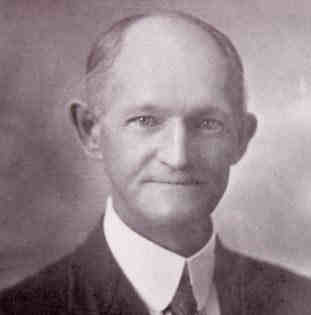
Henry Simonds
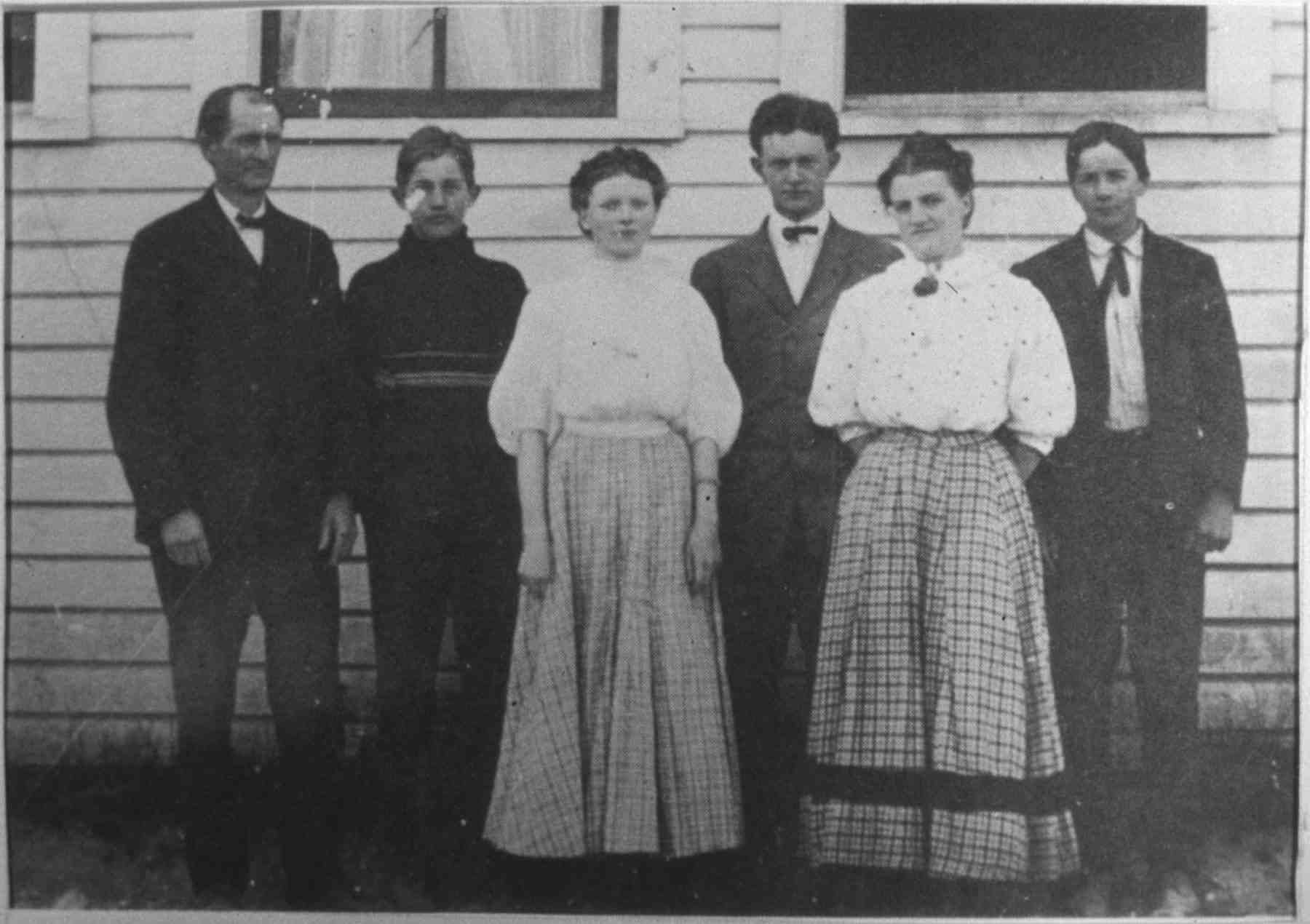
Henry Simonds on left
with Bothell High School students, ca. 1907 to 1909
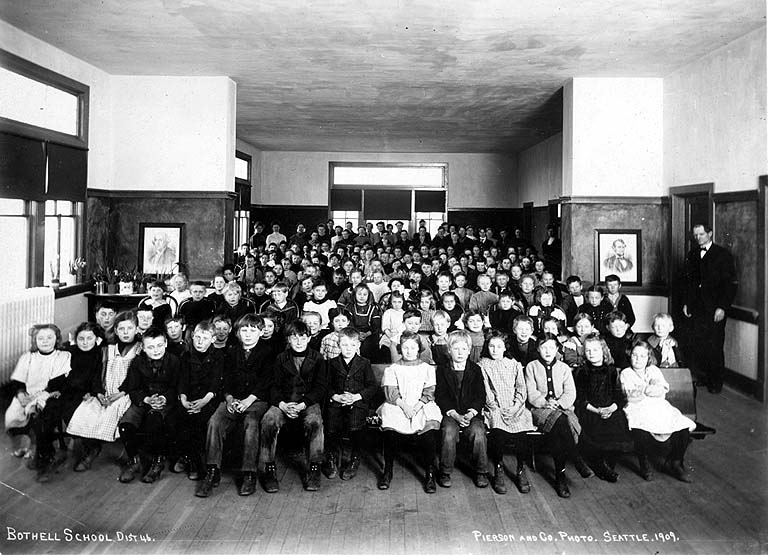
Interior of Bothell School with Henry Simonds
and all students in assembly room, 1909
Henry Austin Simonds, who had been the Oshkosh, Wisconsin, superintendent of schools for seven years, resigned and moved with his family to Bothell in 1906 to help his youngest boy's health with a milder climate and fulfill a dream of becoming a chicken farmer.
He bought some land sight unseen through Tom Davis, an old friend who had already migrated to the area. It was a small three room shack on 40 acres high among the lofty firs and cedars then present in the Moorlands (near today's Inglemoor High School).
The land was advertised as partly cleared and close to a county road. The advertisement didn't say the land was covered with stumps and that Squak Slough was between the land and the county road. He walked the entire two and one-half mile distance from his house to Bothell on foot, except for crossing Squak Slough in a rowboat.
The land proved unsuitable for raising poultry commercially, although as a hobbyist he won prize ribbons for his chickens at county fairs. He went back to teaching to pay for improvements to his land and was hired in 1907 to establish the first high school. Thus he became the first high school teacher and also principal and superintendent. He created the foundation for a high school curriculum that was acceptable anywhere for college entrance.
Simonds Road is named after him.
Bothell High School's 1st graduating class, 1912
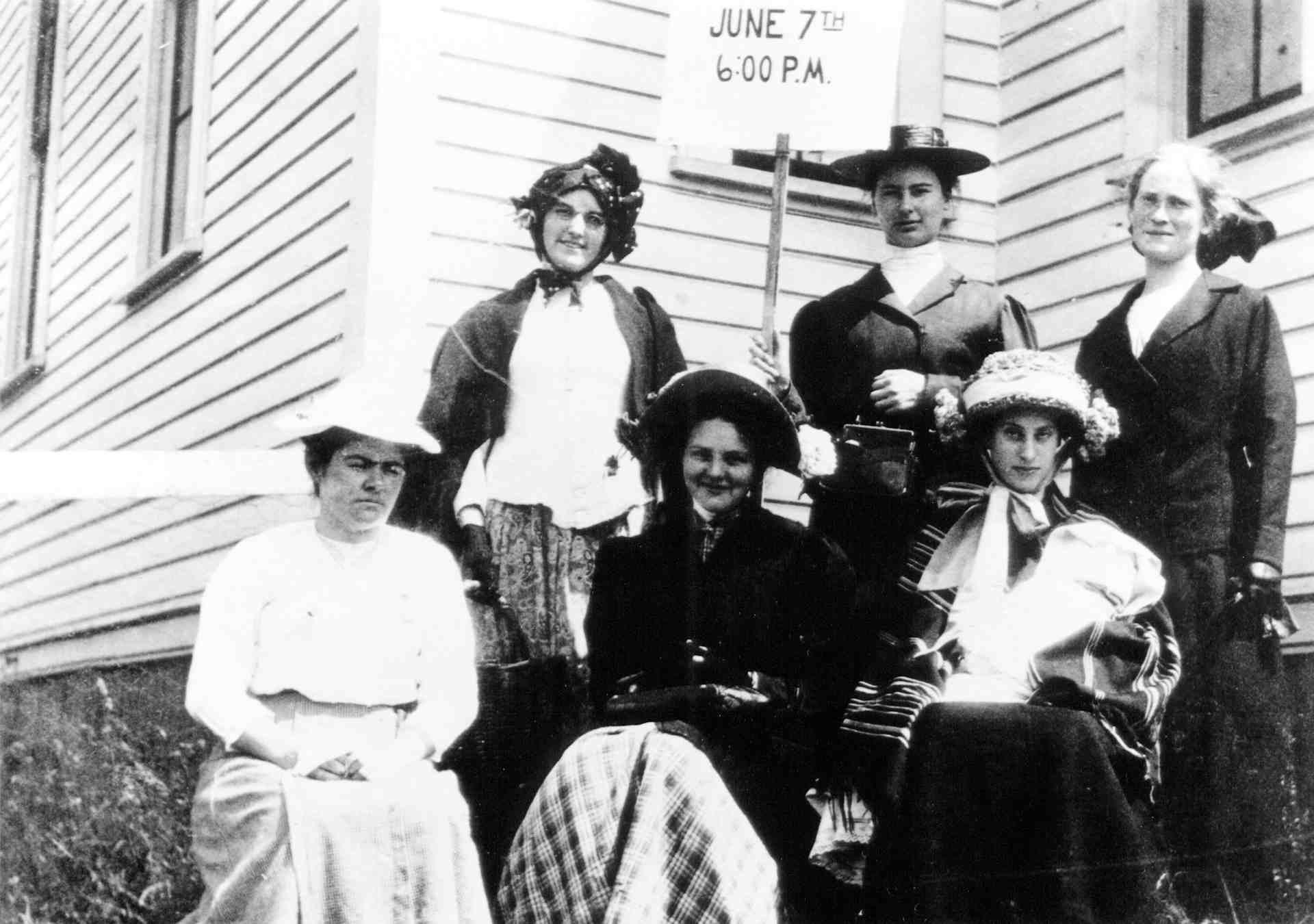
Top, left to right:
Carrie Ross, Merle Olin, Nina Beckstrom
Front, left to right:
teacher Harriet Wray, Sarah Simonds, Erma Olin
The first graduating class in 1912 consisted of five young women, shown in the picture to the right. They performed in a play set 20 years earlier on the subject of women's rights. Their only surviving graduation picture shows them wearing their vintage costumes.
These first graduates connected over the years with members of our class. Merle Olin was our classmate Fred Konker's sixth grade teacher at Latona Grade School in Seattle. Her sister Erma Olin was our junior high school librarian. And Sarah Simonds, the daughter of BHS founder Henry Simonds, married Charles Green (who had earlier courted Carrie Ross) and eventually became the grandmother of our classmate Ron Green.
Bloomer Girls of 1910 with teacher Miss Mary Rheinhart
(photo courtesy Blanche Morton -provided by Ron Green)
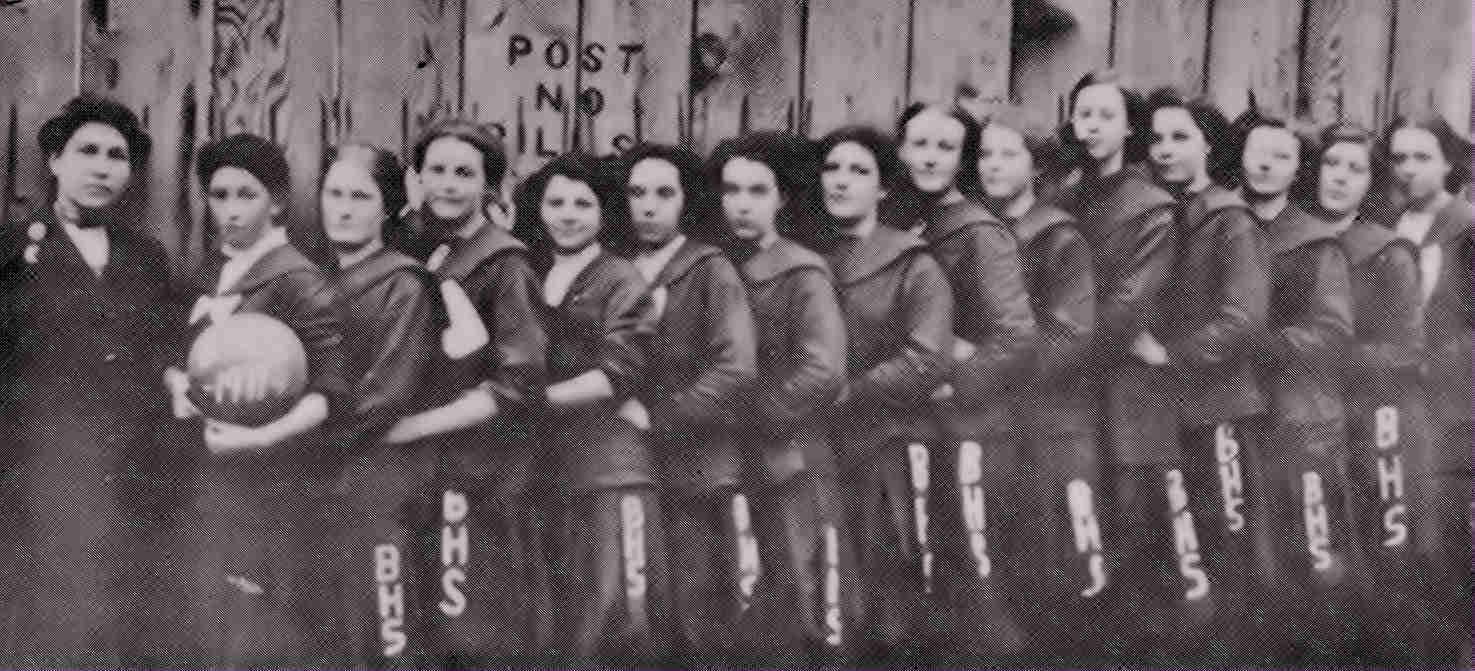
Left to right: Coach Mary Rheinhart, Zella Roomer, Nina Beckstrom, Sarah Simonds, Mary Armor, Esther Wright, Maude Hull, Georgia Turple, Ethel Cotton, Esther Simonds, Erma Olin, Ethel Pearson, Bertha Dutton, Blanche Morton and Martha Stewart.
Although they had played prior to that time for fun, the girls' basketball squad was organized in 1910, with Mary Rheinhart their coach. Erma Olin recalled that the girls walked down to Ericksen Hall after school, swept the floor and were dressed by the time their coach had dismissed her fifth and sixth graders. After expending all this energy for the turnout, they all walked home. (Esther Simonds remembered walking to Kirkland to a game from their home on Simonds road.)In addition to their physical development, the girls raised their own money for expenses and equipment by having a rag social.
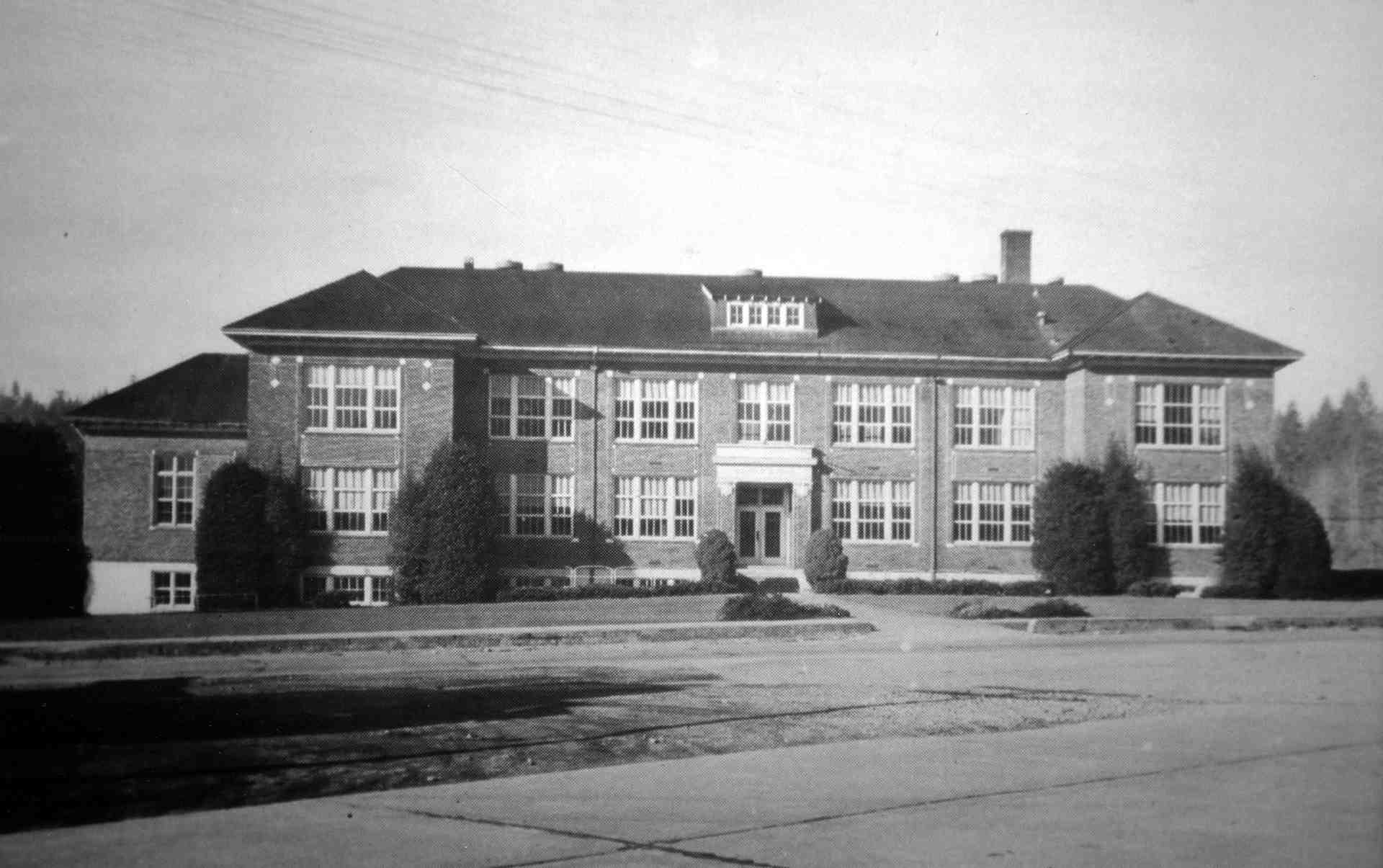
Bothell High School, 1923, 1953 Grade School
demolished 1961
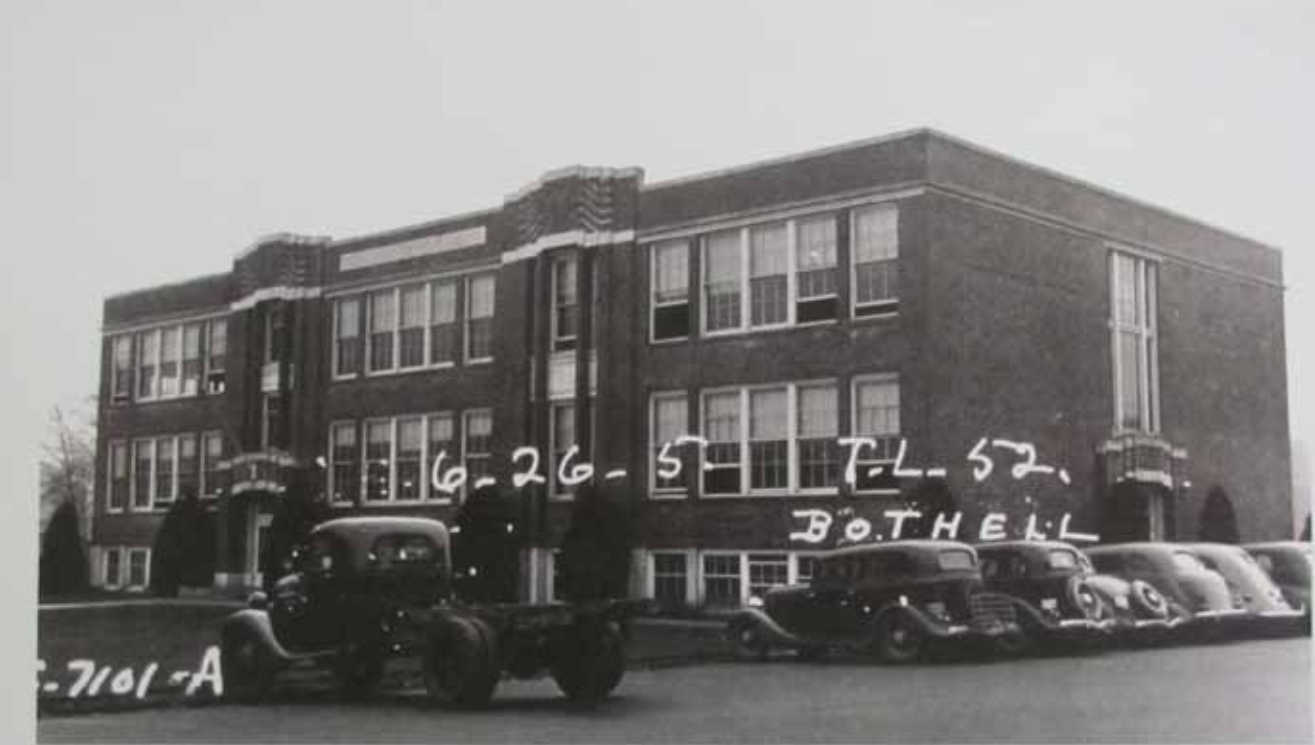
Bothell Jr High 1931
Before 60 ft addition
In 1912 Walter Reseberg became the first basketball, baseball and football coach. There had been teams before Walter Reseberg's time and they played other schools. If eleven prospective players were not enrolled, some of the young loggers of the community were pressed into service. Robert Earnest, the new manual training teacher in 1913, laughingly explained his presence in the football picture that year, "There were not always enough boys in school to make up the team." A few often enrolled for the duration of the football season.
The district continued to expand when the Kenmore School District merged with the Bothell School District in 1916.
By 1921 330 students attended the school, 89 of which were high school students. The Bothell School Board, with the 1907 school bursting at the seams, could see that a separate high school would be needed. The site along the Bothell-Everett highway was purchased for $8,000 in 1921. They proposed a $31,000 bond to pay for the construction of a new two-story brick school building. Voters approved the bond in May 1922 and the new school opened in 1923. The primary school continued to meet in the 1907 school building while the high school students used the new building.
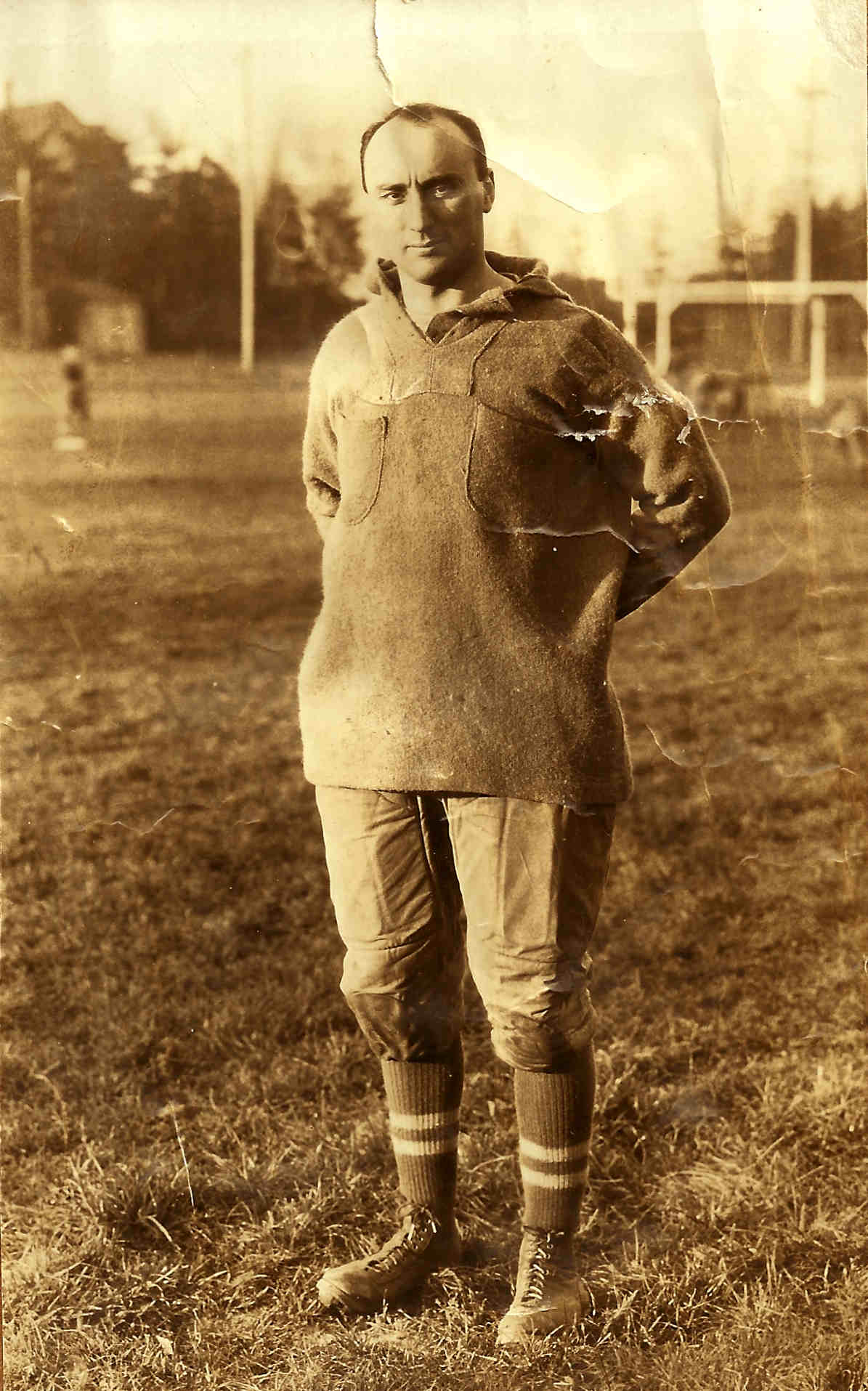
Harold Pop Keeney
1927 Anacortes
(photo from Jill Keeney
scanned by Jim Rettig)
In September, 1921, the district removed an old orchard from a portion of the site for a sports field and created a football field. In honor of the occasion, "the high school football team was advanced $233 to buy new football suits," says one entry in the 1921 school board minutes. A 1920 BHS grad Harold Pop Keeney was hired as the coach. Soon after, he joined the baseball and basketball teams too.
He picked up the nickname “Pop” in Anacortes because he had four children, and the name stuck.
Keeney was born in 1900 to a Bothell pioneer lumber-yard businessman who later became mayor.
Pop coached the Cougars to the state finals in 1923. After graduation from Western Washington University, he left to go coach Longview, Sumner, Anacortes and Kennewick. He had championship teams in every place. Pop always came back to Bothell for additional coaching stints from 1931-34 and from 1945-46. He retired in the late 1940s.
In 1952, the Bothell area honored Keeney, naming the community field Pop Keeney Field in his honor.
Al Haynes, Pop Keeney’s eldest grandson, was principal at Inglemoor High in 1982 through 1992, and then for his alma mater from 1992 until 2003.
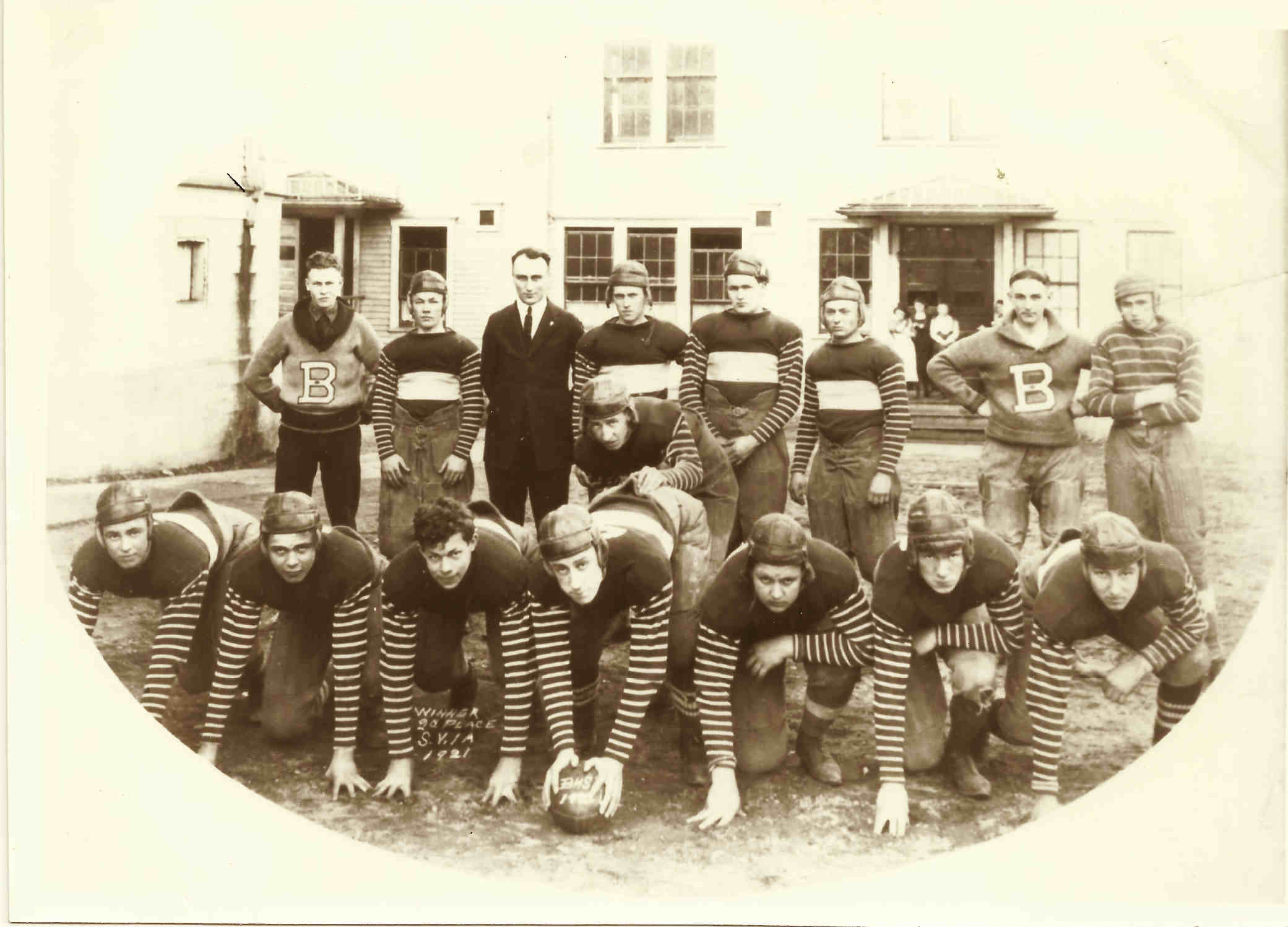
1921 BHS Football Team with Pop Keeney
(photo from Jill Keeney
scanned by Jim Rettig)
Left to Right
Back Row: Harold Neimeyer, Chet Wilson, Pop Keeney/Coach, Fred Clark, Hoyt Thompson, Jerry Longbottom, John Beardslee, George Turner
Front Row: ?, ?. Charles Nims, Chuck Martin, Vern Keener, ?, Bus Frease
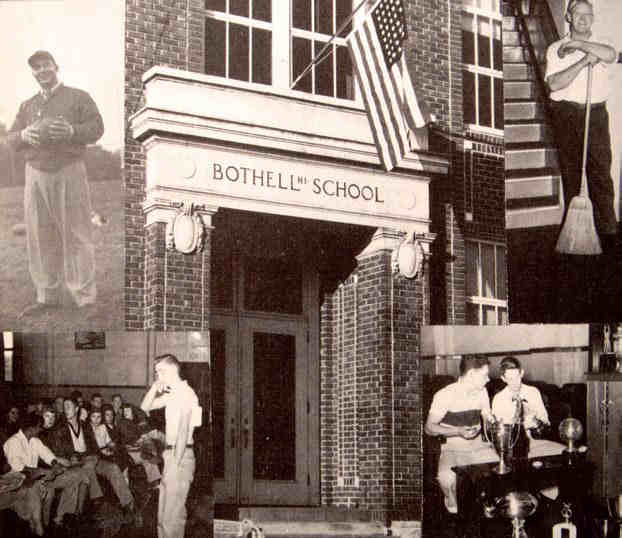
Notice the name
"BOTHELL HI SCHOOL"
The two-story brick Bothell High School built at this location opened in September, 1923. It served as the high school for the next 30 years. When it opened there were five teachers plus coach Harold Keeney.
By 1927-28, the four-year high school boasted an enrollment of 180. The duties of principal and superintendent were separated in 1929.
From 1953 until demolition in 1961, the 1923 high school building was used for fifth and sixth grade classes and then as an annex to the junior high.
The smaller letters HI engraved in the stone lintel were most likely added to distinguish it from the later adjacent Junior High and identify it as the high school.
The Bothell School Board in 1924 ordered the construction of its first official bus. This top-heavy, twenty-passenger bus was a terror to ride, challenged by gravel country roads that were often full of chuckholes. Students were notorious for arriving late to school, many times covered in mud from helping push their bus out of the multiple ditches during their treacherous winter rides.



